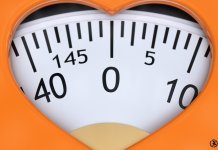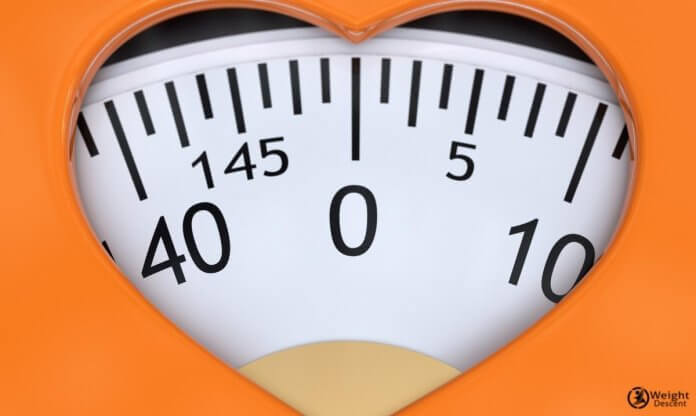I get commissions for purchases made through links on the site. As an Amazon and Clickbank Associate I earn from qualifying purchases. Learn more.
People become more conscious of their weight when trying to lose weight and start checking weight day and night. Sometimes the body weight becomes more, and when you check in the evening, the weight is low. Even there are some bodyweight fluctuations at the end of the working week and more at the weekends. Bodyweight fluctuations are normal if the body fluctuates more than 6 pounds in a week.
But daily weight fluctuation is normal because of the intake of a lot of food or water weight. Most of the time, you feel heavy in the morning when you wake up, but after washout all water, you feel lighter; this is how your body weight fluctuates. Sometimes you eat a meal before bedtime that results in weight loss, or you did a sweaty workout that results in weight loss.
Here we will discuss these bodyweight fluctuations normal or not and what is the leading cause of these fluctuations?
Table of contents
Reasons for Weight Fluctuations
1. Water intake
Your weight at the end of the heavy workweek is low on Friday, and when you check your weight on Sunday night, weight is higher. Going into routine work and consumption of calories is equal to the number of calories you burn. On Sunday night, you had a lazy weekend or full of fun; you eat and drink a lot; that’s why your weight fluctuates and back to normal. Usually, it becomes difficult to eat and drink in moderation every day, which is the main cause of weight fluctuation. Eating the number of calories that your body uses per day may reduce the chance of weight fluctuation.
2. Carbohydrates and sodium
Intake of carbs and sodium gives retention water in the body. Food containing sodium and carbs will retain more water inside the body, which is the reason for your weight fluctuation. For every one gram of carb, your body stores three grams of water retention. Cutting down the carbs, sodium, sugary drinks and replacing magnesium and potassium-rich foods balance your sodium requirement in the body.
3. Food weight
The food you eat has some weight which added to your weight and weight fluctuate. The water in the food also added to your weight a few ounces at every meal. The calories in food may use for body fuel or energy stored for later. The energy stored can use to process the waste product in the form of stool or urine.
4. Waste movement
The food you eat will break into pieces, and some food is used as a source for energy and some use for hydration. All the leftover food as mucus, urine, and in the form of stool are washout from the body, and you will see a slight decrease in weight.
5. Exercise
Exercise can cause you to sweat and burn fat, which results in fat loss. An hour physical workout can help you lose a half-pound. Weight fluctuation may occur due to excessive sweating due to weather conditions and exercise. The water you drink may eliminate by sweating during exercise. Water does not contain calories and won’t let you gain weight over time, but this weight fluctuation is normal, and not need to worry.
6. Medical issue
Some medications can cause you more cravings for food and make you feel hunger. Medicine may increase your appetite or vary your metabolic rate. If you are on specific medication for diabetes, depression, seizure, or blood pressure, it might gain weight during the course. If you gain a lot of weight, then you must consult with the doctor about the condition. The medical issue might be the cause of your weight fluctuation, and by changing dietary changes or fitness, changes will help solve your problem.
7. Menstrual cycle
Females have a menstrual cycle every month, and they feel bloating or heavy base on the first day of the process. The weight might high at the starting of the cycle and start decreasing with time. These small weight fluctuations are normal and may be due to water or hormonal changes in the body. Before menstruation, you want more food than a daily meal. Intake of more food with causes water retention may be the reason for weight fluctuation, but there is nothing to worry about.
Psychological Factors Influencing Weight Fluctuations
Weight fluctuations aren’t solely dictated by physical factors; our mental and emotional health plays a crucial role too. Here’s how psychological factors can influence weight:
- Stress: Releases cortisol, which can lead to increased fat storage and weight gain.
- Emotional State: Affects food choices; sadness may increase cravings for high-calorie comfort foods.
- Sleep Quality: Impacts hunger-regulating hormones; poor sleep can increase appetite and contribute to weight gain.
- Eating Disorders: Can cause significant weight fluctuations and disrupt normal eating patterns.
- Body Image: Influences eating and exercise behaviors, with negative perceptions potentially leading to unhealthy weight control methods.
- Coping Mechanisms: Sedentary activities like excessive screen time or mindless snacking in response to stress can lead to weight gain.
Addressing psychological factors through stress management techniques, adequate sleep, and professional support is vital for maintaining a healthy weight.
Are These Weight Fluctuations Normal?
Weight fluctuation may occur due to any reason, or it’s just fluid level changes. You can check weight fluctuations at any time and notice every time you flush out to monitor your weight throughout the month. Because there is no fixed or normal weight, you must be concerned with the dietician when you see drastic weight changes. But small weight fluctuations are normal and do not need to worry.




























